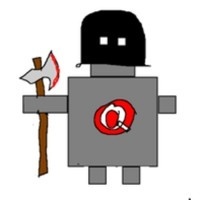I’m going to give the linguistic meaning of meaning; certain (old school) philosophers would accept it as an answer, and Gottlob Frege, who came up with the crucial distinction, is considered a philosopher and not a linguist. (Back in the 1890s, linguists weren’t really doing semantics.)
Language is a code. A code is a system of signs. A sign is a mapping of an utterance (e.g. a word) to something in the world (e.g. a thing).
The meaning of a word is its mapping.
The naive understanding of meaning is its denotation: the set of all things in the world that a word maps to. So the denotation of apple is the set of all apples in the world (that were, or are, or ever will be). The denotation of Nick Nicholas is the set of these guys (among others):

Swift sent this up in Gulliver’s Travels, with the scholars of Laputa lugging sacks along of a bunch of stuff, which they could pull out and point to, to establish the denotation of what they were talking about. “Cat! You know! One of these! *pulls cat out of a bag*” “*Mrowwwww!*”
It gets a good deal messier with adjectives and verbs, but still not intractable. The denotation of yellow is the set of all yellow things in the world. The denotation of sleep is the set of all animals sleeping. The denotation of give is the set of all people giving things to someone.
You may have started seeing the problems with this approach for verbs. But Frege identified it more straightforwardly with nouns. His example was the Morning Star and the Evening Star. In class, I used Clark Kent and Superman.
You and I know that Clark Kent and Superman are the same person. So “Clark Kent” and “Superman” have the same denotation. But Jimmy Olsen doesn’t know that. And in fact, even if we do know that, Clark Kent and Superman don’t mean the same thing. Clark Kent means “some geeky guy with glasses who works as a journalist at The Daily Planet”. Superman means “some musclebound himbo who wears his underpants on the outside and leaps tall buildings in a single bound”. (That’s leaps, not flies.)
Frege’s example is along the same lines: we know that the Morning Star and the Evening Star have the same denotation, {Venus}. But the ancient didn’t, and even now, they don’t have the same meaning. The Morning Star means “the really bright star you see in the morning”, and the Evening Star means “the really bright star you see in the evening”. The fact that we have now established they are the same thing does not mean those definitions are identical.
Frege identified sense as distinct from denotation. Sense is not the set of all things that the word means. Sense is the criteria you use, to work out whether something belongs to the set of all things that the word means. Those definitions I gave of Clark Kent and Superman are different, even if their denotations are the same: they are different senses.
Denotation naively assumes there is one objective meaning in the world for any noun, that you can point to. Sense walks it back: meaning is a set of instructions to working out what a noun points to. And notice that those instructions are themselves language. It was the start of realising, increasingly, how subjective meaning is, and how divorced it can be from the outside world: how meaning is trapped within language.
In fact, that realisation was earlier than Frege. Remember the definition of sign I gave above? “A sign is a mapping of an utterance to something in the world”, and the mapping is the meaning? That’s Saussure’s simplified model. The Semiotic theory of Charles Sanders Peirce, decades before Frege, adds a third element to a sign: the interpretant sign. It’s not the person interpreting the sign: it’s the interpretation of the sign—which is itself a sign. Turtles all the way down.




